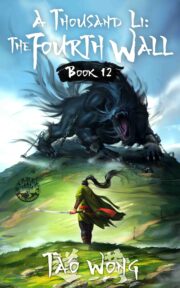Nebula Awards Interview: Eugie Foster by Charles Tan
 Eugie Foster won the Nebula Award for her novelette “Sinner, Baker, Fabulist, Priest; Red Mask, Black Mask, Gentleman, Beast”.
Eugie Foster won the Nebula Award for her novelette “Sinner, Baker, Fabulist, Priest; Red Mask, Black Mask, Gentleman, Beast”.
Hi! Thanks for agreeing to do the interview. What’s the appeal of speculative fiction for you?
SF is the stuff that fires the imagination and leaves you wandering around in a cloud of “what if” and “ooo” for the whole day: the magic, the sense of wonder, the ideas, the fantastical worlds, the optimism and the admonitions. The same fascination and love that draws me as a reader of speculative fiction is what attracts me to it as a writer.
What made you decide to become a writer?
I honestly can’t remember a time when I didn’t want to be a writer. My mother was a librarian at the University of Illinois (in Champaign-Urbana), so I was ensconced in library stacks and immersed in one book or other throughout my childhood. There were the obligatory ballerina-veterinarian-jockey stages growing up, but they were always “I wanna be a ballerina. And a writer” or “I wanna be a veterinarian. And a writer.”
Over the years, you’ve been part of various online publications. What made you decide to join them? How have they impacted (or not impacted) your writing? What made you decide to eventually leave?
Oh, they definitely impacted my writing. The obligatory and massive time commitment caused my writing productivity to take a nose dive and in the end, that was just too steep a price to pay for my involvement with them.
I initially agreed to take over Tangent when the previous editor stepped down and there wasn’t a replacement. I’d been a reviewer there for the last year or so, and I’ve believed for a while that short fiction gets overlooked in the industry, perceived as a stepping stone to novel publication rather than worthwhile in its own right. And when the appeal went out to rescue Tangent from closure, I’d just dropped the curtain on my corporate cubical monkey days, so figured I had the time to commit to it, was keen for the experience, and excited at the prospect of doing something to increase the presence of short fiction. I knew there was going to be a steep learning curve; I’d never managed or edited a publication before, and with the previous editor retired and the founder AWOL, I had to figure it out as I went along. Even so, it took up a lot more time than I’d reckoned on, but I believed it was a worthwhile undertaking, and I ran it for several years until Tangent’s founder resurfaced and it became apparent that we weren’t going to be able to work together.
The day that Tangent and I parted company, Andy Cox invited me to relaunch and helm The Fix, the review magazine published by TTA Press. Doing so would allow me to continue working toward the same purpose, and I’d collected a talented stable of reviewers and established a routine by then, so I accepted. I also agreed to join the editorial staff of The Town Drunk, a humorous SF ‘zine edited and published by my friend Brit Marschalk, who was also one of my reviewers at Tangent and then The Fix. However, in the next year a few events cropped up—most notably a new day job—and I found that I no longer had as much free time, with the result that I was writing a lot less.
So with much regret, I resigned from The Town Drunk in an effort to reclaim some writing time. I also asked Marshall Payne to become my assistant editor at The Fix. Marshall was a tremendous help. Don’t know how I would’ve managed without him. But I was still stretched too thin, and I realized that the only way I could regain focus on my writing was to definitively set aside the primary thing which were interfering with it, at which point I tendered my resignation to Andy Cox.
In your opinion, how is the Internet changing the environment of a writer?
The Internet has transformed so many aspects of the industry: publishing models, marketing, networking, promotion. At the rudimentary level, in order to be successful, a writer needs to be published in venues which will generate the greatest name recognition and accessibility to readers. Once upon a time, that meant the professional print magazines. But their subscription numbers are declining and have been for a long time. More and more, the publications with the largest audiences are online: e-zines and podcasts. I’m certain that my work which has appeared in podcasts like Escape Pod, Pseudopod, and PodCastle has reached a significantly larger audience than that which has only been published in print.
Also, writers are expected to take a much more active role in their own promotion and marketing these days. Many book publishers factor in whether an author has already established a readership and fan base when making their purchasing decisions, and social networking, a blog, and a professional website are expected, even obligatory.
And while I frequently rail against the reality and necessity, writers can’t just hide themselves away in an isolated sanctuary somewhere and pump out good stories. They need to network. Certainly, editors choose what they publish on the basis of quality. Of course they’ll publish the very best stories they can. However, if two equally good stories get submitted and they only have one slot, and they’ve gotten drunk and sung sea chanteys in Klingon with one of the writers but don’t know the other from navel lint, it doesn’t take a rocket scientist to figure out which writer’s story will get bought. Likewise, when editors solicit stories to invitation-only projects, they’re more likely to go to writers who they’ve already established a relationship with. Indisputably, the Internet is a significant and sometimes irreplaceable tool in establishing those relationships.
How did Norilana Books end up publishing your short story collection, Returning My Sister’s Face?
Well, I’d been hungry to have a collection published for a while, but when I started looking for publishers to pitch a query or proposal to, they were either closed to submissions or otherwise not considering new collection or anthology projects. Then Norilana Books came to my attention through my work with The Fix. I knew Vera Nazarian from having read her fiction, and we’d chatted on LiveJournal through our respective blogs, so I dropped her a line to see if she’d be interested in publishing Returning My Sister’s Face. And she was!
For you, is there a division between fantasy, science fiction, and horror, or is it one huge amalgam?
Huge amalgam. Definitely huge amalgam.
I’ve never been inclined to play the “what genre is it?” game or to take part in the oftentimes bloodier “that’s not such-and-such genre!” debates. Genre lines are so arbitrary and, in many regards, subjective. Like, to me, horror is more contemporary in setting, mood, and character than dark fantasy, but at the same time, urban fantasies are essentially defined by their modern settings, and they tend to be quite dark, yet I don’t consider them horror. Others undoubtedly disagree. Yet in the end, a good story is a good story. Does it really matter whether it’s science fiction or fantasy or horror? Will a reader enjoy it less because it’s been branded with one genre label or another?
How about writing for children vs. writing for adults?
Going with “amalgam” again. A good story for children should be a good story for adult readers too.
My first sale, “The Adventures of Manny the Mailmobile,” was to the YA magazine Cicada in 2001, but I didn’t write “Manny” to be YA. Some of the writing group folks who critiqued it thought “Manny” was YA, which is how I ended up sending it to Cicada first. That sale prompted me to try writing more children’s lit., and I made several sales to Cricket. Then for a while I was sending anything and everything that I thought might be remotely appropriate to the Cricket Magazine Group first. To date I’ve made thirteen sales to their various magazines, and I’ve sold several stories they passed on, as well as reprints of stories they originally published, to publications targeting adult audiences.
That really highlights to me that how a piece of fiction is categorized is mostly marketing and doesn’t necessarily indicate anything about the properties of that work. On a related note, a mistake I think a lot of people make when they try to write for young readers is writing down to their intended audience. I don’t make concessions in vocabulary, dialogue structure, or prose complexity when I write for kids. I figure it’s better to challenge them than to sell them short. And when I sit down to write a children’s story, I’m writing for the reader I am now as well as for the one I used to be.
In your opinion, what are the challenges and benefits of writing in the novelette format?
A writer can afford to take more risks in shorter works—short stories, novelettes, even novellas—than in a novel. Whenever you invest yourself in a big project like a novel, there’s a lot of time and effort going into that single effort. If you end up with something that’s an utter failure—however you define failure: incoherent, unpublishable, whatever—you’ve effectively spent that huge chunk of yourself and have nothing to show for it. But if your experimental novelette fails, you’re only out eight or nine thousand words, a few weeks maybe. It’s a lot easier to be philosophical about chalking up a failed short to a learning experience and just moving on than it is to shrug off a novel. But also, I like the short forms because they’re the perfect length for exploring a single idea, or the dynamics of a single relationship, or the quirks and personality of a single character.
In “Sinner, Baker, Fabulist, Priest; Red Mask, Black Mask, Gentleman, Beast”, what made you decide to use the concept of masks as the basis for your story?
I had the idea for the story—a society where people change their identities and their societal roles, even their personalities, based upon masks they don—rattling around in my creative subconscious for a while. (As a bit of trivia, I allude to it in another story I wrote, “The Storyteller’s Wife,” which was published in Realms of Fantasy in 2005.) But it took me a couple years to get around to writing it.
As to the mask conceit, masks are universal icons found throughout history and spanning nearly every culture, integral components of rituals, traditions, and celebrations. The donning of another face, or the corollary, the relinquishing of one’s own, is a transformative act, an unambiguous exchange of identity. Fundamentally, “Sinner” is an examination and exploration of themes of identity and self: who we are against a backdrop of societal roles and expectations, the external and internal influences that affect our sense of self, and the choices we make that reflect who we truly are. As such, the masks in my story are primal representations of identity and, as manifests symbols of change, they also serve to illustrate the flaws within a stagnant society.
What projects are you currently working on?
I’ve been plugging away at a novel for a while now, although I keep getting sidetracked by various other writing projects, and I’ve got several short stories I’m working on in various states of completion. I’m also looking forward to the debut of the HUMAN FOR A DAY anthology from DAW later this year which will include my story, “Beneath the Silent Bell, the Autumn Sky Turns to Spring.”
—
Eugie Foster calls home a mildly haunted, fey-infested house in metro Atlanta that she shares with her husband, Matthew. Her publication credits number over 100 and include stories in Realms of Fantasy, Interzone, Cricket, Orson Scott Card’s InterGalactic Medicine Show, and Fantasy Magazine; podcasts Escape Pod, Pseudopod, and Podcastle; and anthologies Best New Fantasy and Best New Romantic Fantasy 2. Eugie’s fiction has been translated into Greek, Hungarian, Polish, and French; received the Phobos Award; and been nominated for the Nebula, BSFA, Black Quill, and Bram Stoker awards. Her short story collection, Returning My Sister’s Face and Other Far Eastern Tales of Whimsy and Malice, is available from Norilana Books. Visit her online at EugieFoster.com.
Charles Tan’s fiction has appeared in publications such as The Digest of Philippine Genre Stories and Philippine Speculative Fiction. You can visit his blog, Bibliophile Stalker, the Philippine Speculative Fiction Sampler, or Best Philippine Speculative Fiction 2009.


